The village is built around a central pond, with a resident swan, and set picturesquely amongst the trees on a hillside overlooking the Takayama Valley. The original houses have been carefully dismantled from around the Gifu area and rebuilt in the village to create the open-air museum. As well as preserving the structures, the buildings are now open for visitors to wander through and see what living conditions were like.
The most distinct buildings in the village are the gassho-zukuri farmhouses with their high thatched roofs. The houses were constructed without nails, the roof beams being bound together with twine or rope. They were built to withstand the heavy snowfall in the mountains of Gifu prefecture, the steep angle of the roof helping the snow to slide off. The ground floor of the house provided a living area for the family and several levels above were used as work spaces for activities such as silkworm cultivation and making washi paper.
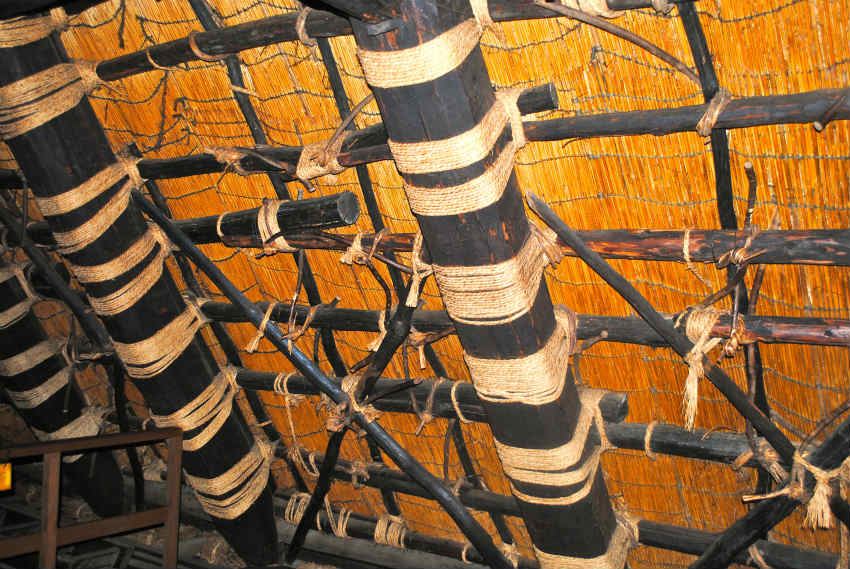
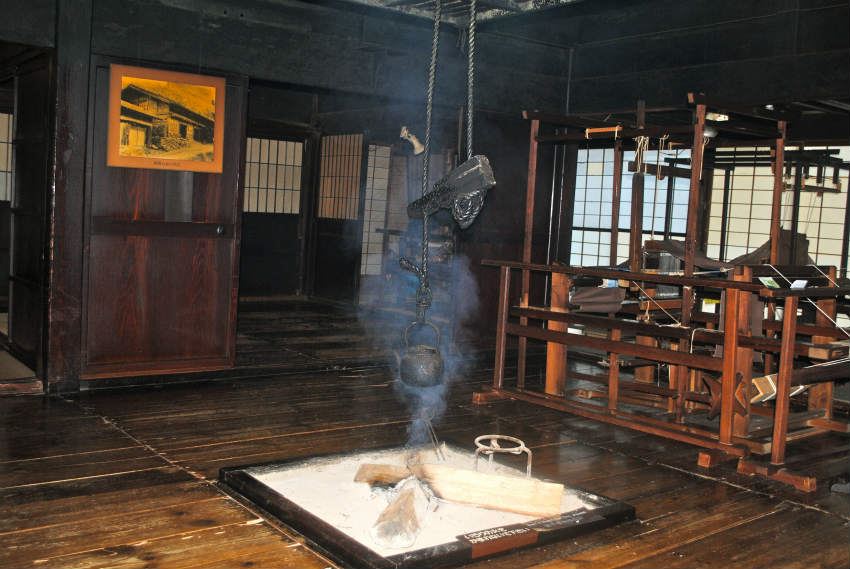
Other buildings include a former village head’s house (Taguchi’s house), which has a number of rooms so that village people could meet, storehouses, a sawmill, a water mill and Tomita’s house, which was a way station for travellers.
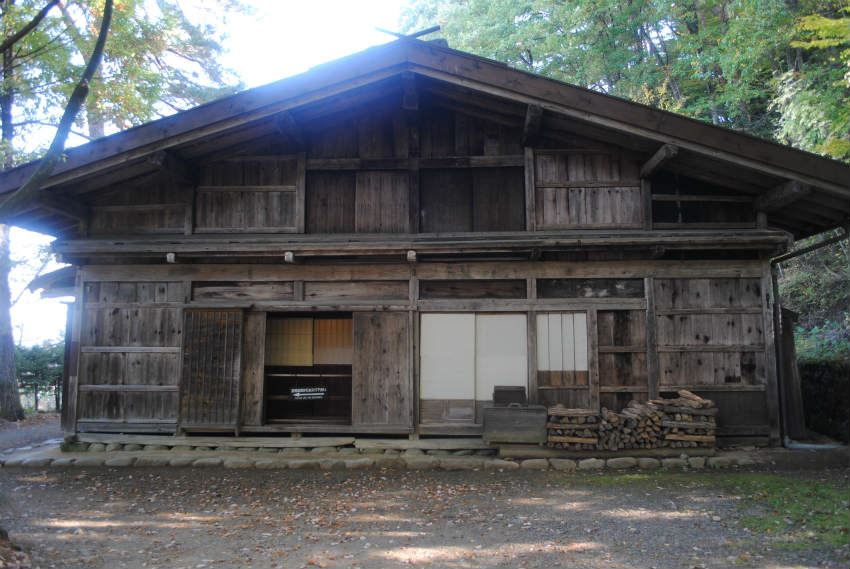
Inside, most of the buildings have a raised living area for eating and sleeping and a space at end of animals and storage of tools. Several houses have fires burning in the firepits throughout the year, as this keeps them free from insects and maintains the ropes and thatch.
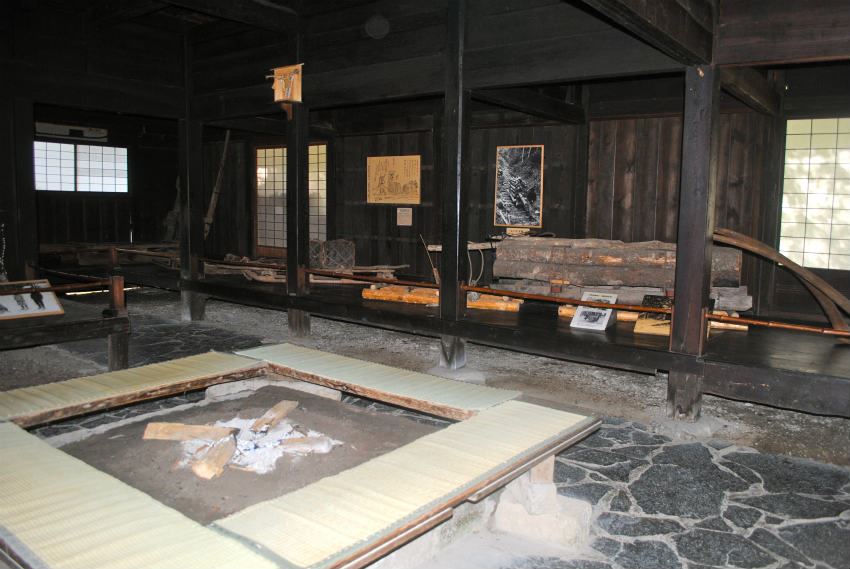
On display are artefacts relating general life such as straw boots, sandals, pots and pans and articles needed for silkworm cultivation, spinning, farming tools, carts and skis and sledges for travelling during winter. Some of the houses have special festival exhibits and at times there are craftsmen demonstrating skills or selling products.
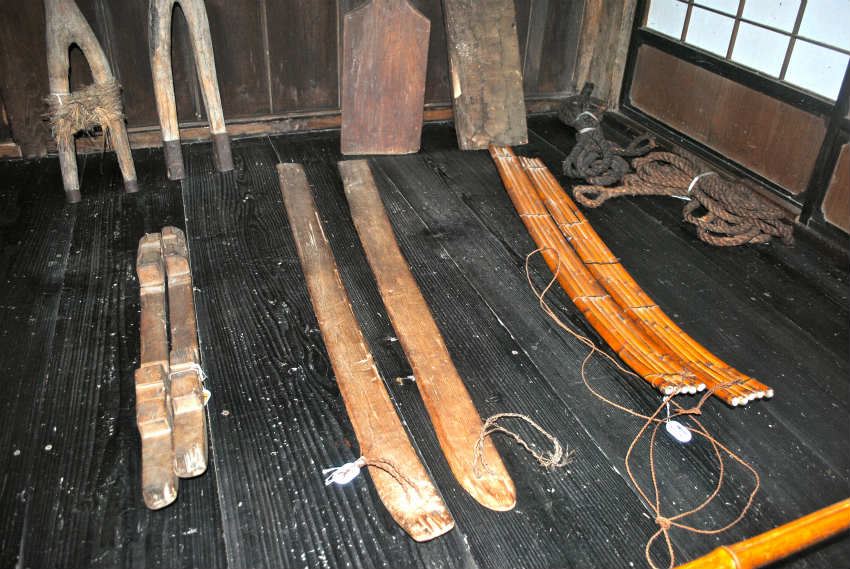
Hida no Sato changes with the seasons. See it in spring with fresh green foliage or autumn with the red and yellow leaves, or visit with snow on the ground and the pond frozen over, or in summer when the (Kurumada) wheel shaped rice paddy in front of Nishioka’s house is a vibrant colour.
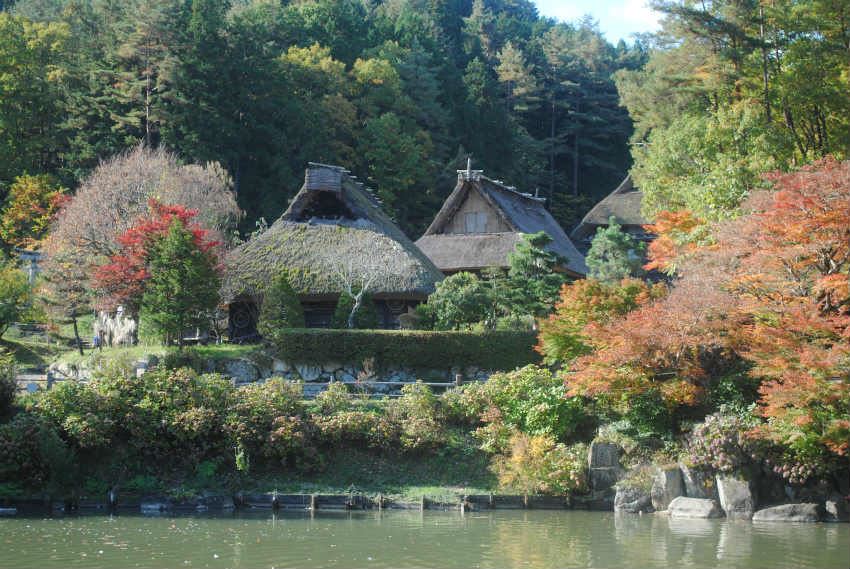
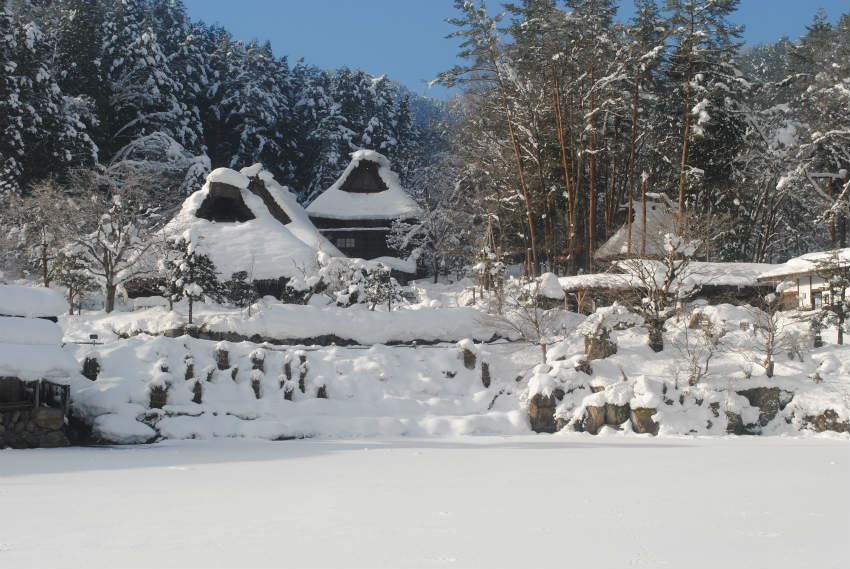
Allow two or three hours for a visit to Hida no Sato and wear easy to remove shoes if you want to look inside the buildings. Combine the trip with a visit to the nearby Hida Takayama Craft Experience Centre where different hands-on craft opportunities are available.
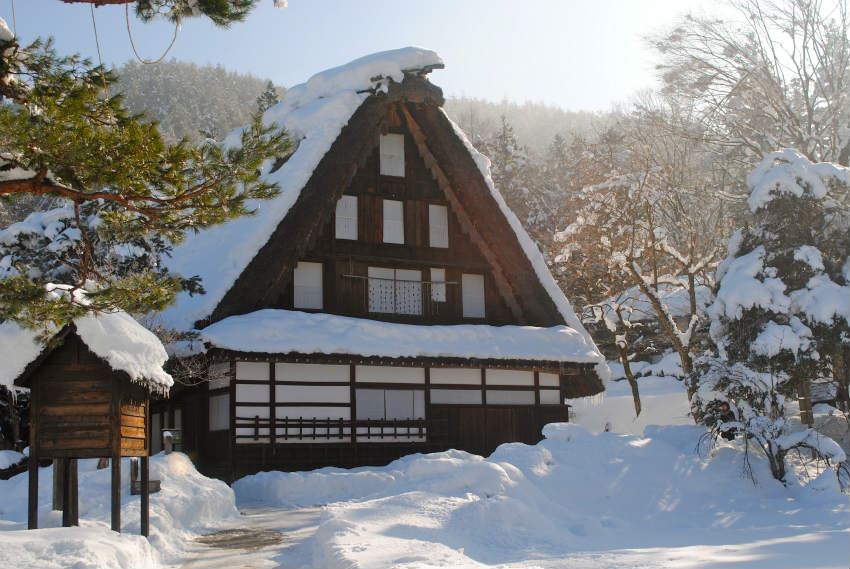
Information
Website:http://www.hidanosato-tpo.jp/english12.htm
Opening times: 8.30-17.00 daily
Address: 1-590 Kamiokamotomachi, Takayama, Gifu 506-0055
Map:
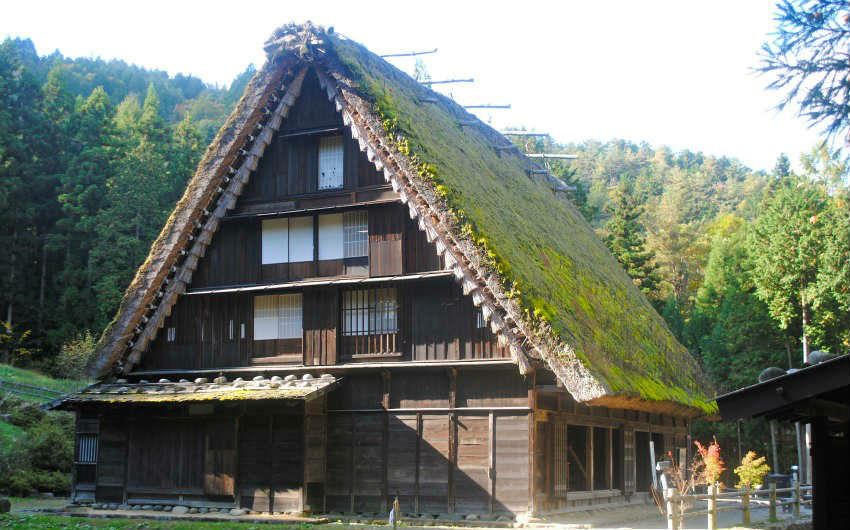
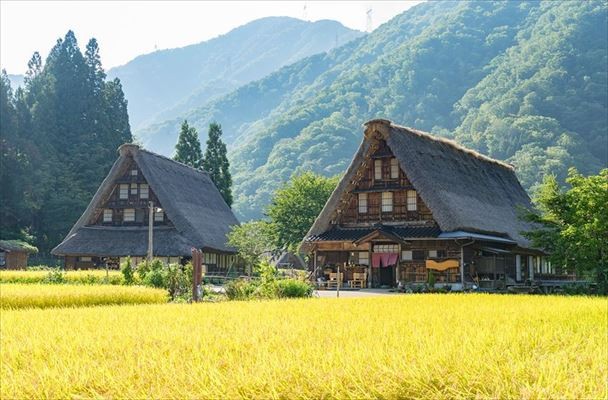
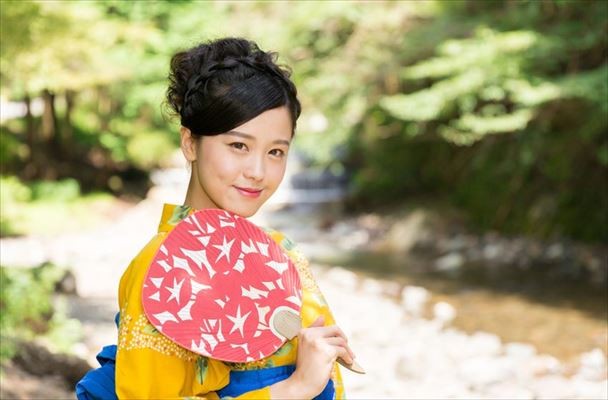
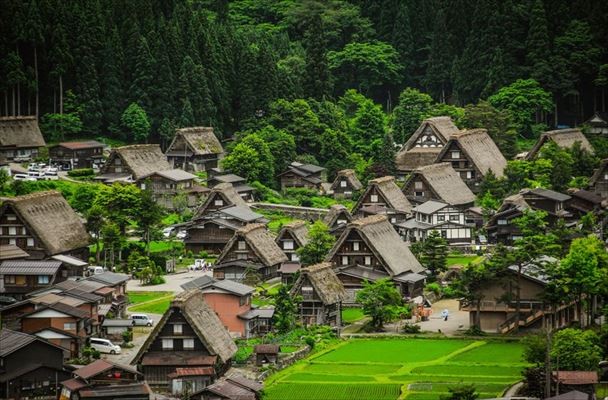
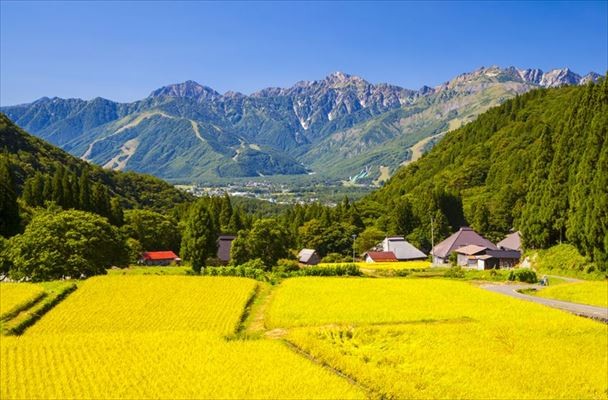
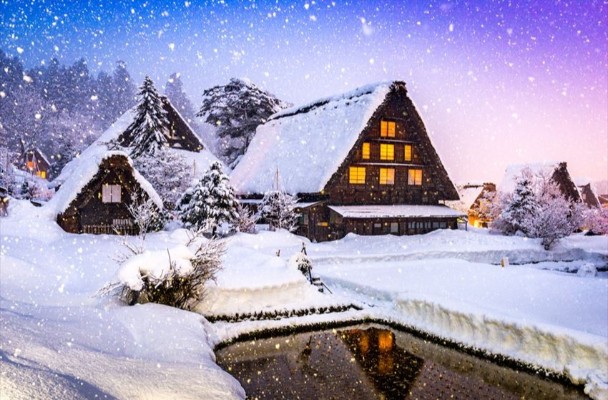
Comments